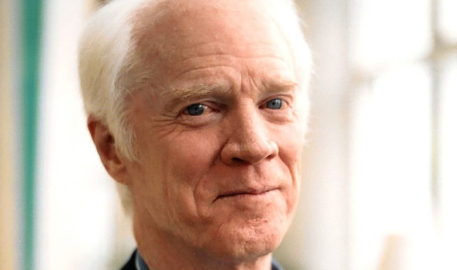About the Declaration
Read the Declaration
Sign the Declaration
About the Declaration
At the time of the declaration in December 2014, it was thought that there were roughly one million near-Earth asteroids with a diameter of around 70 metres that had the potential to impact Earth at some stage in the future. Yet, only about one percent of this population had been discovered. (1)
The diameter of 70 metres was important because it is the estimated size of the asteroid that exploded over the Tunguska region of Russia on 30 June 1908. The blast flattened an area of forest larger than a modern city.
Hence, the 100x Declaration was written to call for an increase in the rate of near-Earth asteroid discovery by a factor of 100 within the next ten years. This would mean accelerating the detection rate to find 100,000 near-Earth asteroids a year.
“The more we learn about asteroid impacts, the clearer it became that the human race has been living on borrowed time,” said Brian May. “Asteroid Day and the 100x Declaration are ways for the public to contribute to an awareness of the Earth’s vulnerability and the realization that asteroids hit Earth all the time.”
Asteroid Day would be the vehicle to garner public support to increase our knowledge of when asteroids might strike and how we can protect ourselves.
“Early warning is the essential ingredient of planetary defense,” said Rusty Schweickart, Apollo 9 Astronaut, founder of the Association of Space Explorers (ASE) and former chair of the Asteroid Day Expert Panel.
A Press Conference to announce the launch of Asteroid Day was held simultaneously in London and San Francisco on 3 December 2014. Representing Asteroid Day in London were Grig Richters, Brian May and Lord Martin Rees, and in San Francisco, Rusty Schweickart, Ed Lu and Tom Jones, President of the Association of Space Explorers (ASE). Lord Martin Rees read the 100x Declaration and the list of signatories for the 100x Asteroid Declaration rapidly grew to include hundreds of esteemed scientists, physicists, astronauts, and Nobel Laureates from 30 countries and leaders in business and the arts. A illustrative list of notable signers today include Anousheh Ansari, Mayim Bialik, Broken Bells, Stewart Brand, Sarah Brightman, Brian Cox, Richard Dawkins, Peter Gabriel, Terry Gilliam, † Stephen Hawking, Steve Jurvetson, Peter Norvig, Bill Nye, Helen Sharman, Nicole Stott, Jill Tarter, Kip Thorne, Silvia Torres-Peimbert and more than 78 astronauts and cosmonauts.
What began with a scientifically-based declaration about the need for the rapid discovery of near-Earth asteroids to ensure the safety of our planet, has now grown into a global movement of awareness regarding this preventable natural disaster. Thousands of independently-organised events have taken place around the globe, encompassing 125 of the world’s 195 countries.
Read the Declaration
As scientists and citizens, we strive to solve humanity’s greatest challenges to safeguard our families and quality of life on Earth in the future.
Asteroids impact Earth: such events, without intervention, will cause great harm to our societies, communities and families around the globe. Unlike other natural disasters, we know how to prevent asteroid impacts.
There are a million asteroids in our solar system that have the potential to strike Earth and destroy a city, yet we have discovered less than 10,000 — just one percent — of them. We have the technology to change that situation.
Therefore, we, the undersigned, call for the following action:
- Employ available technology to detect and track Near-Earth Asteroids that threaten human populations via governments and private and philanthropic organisations.
- A rapid hundred-fold acceleration of the discovery and tracking of Near-Earth Asteroids to 100,000 per year within the next ten years.
- Global adoption of Asteroid Day, heightening awareness of the asteroid hazard and our efforts to prevent impacts, on June 30. DONE!
I declare that I share the concerns of this esteemed community of astronauts, scientists, business leaders, artists and concerned citizens to raise awareness about protecting and preserving life on our planet by preventing future asteroid impacts.
*On December 06, 2016 the United Nations General Assembly (UNGA) has proclaimed that International Asteroid Day will be observed globally on 30 June every year. One of our three goals has been accomplished 2 years and 3 days after the launch of Asteroid Day. Let’s get the rest done, too. Read the resolution here.
Sign the Declaration
By filling this form, you agree to content of the Declaration.
1: Harris A. W., Boslough M., Chapman C. R., Drube L., Michel P., and Harris A. W. (2015) Asteroid impacts and modern civilization: Can we prevent a catastrophe? In Asteroids IV (P. Michel et al., eds.), pp. 835–854. Univ. of Arizona, Tucson, DOI: 10.2458/azu_uapress_9780816532131-ch042.













